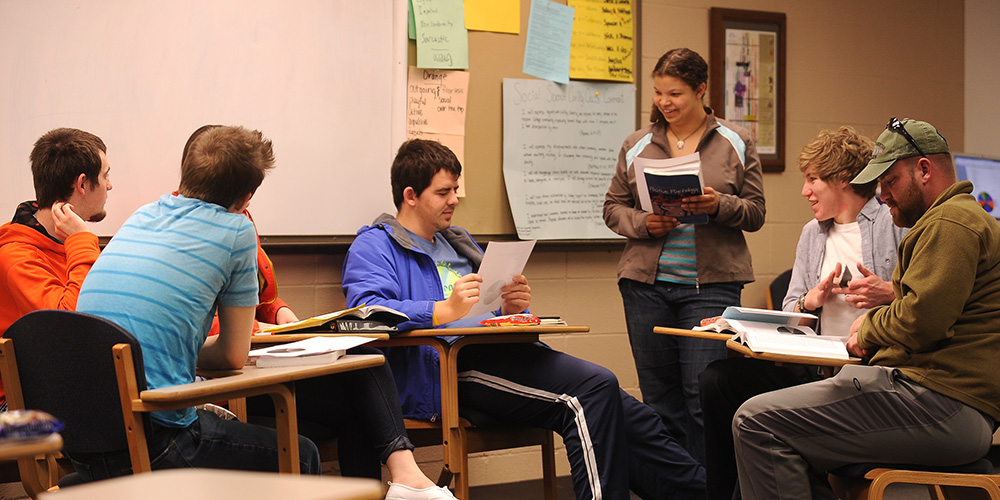A lot of research has been done on what makes people sick, but few psychologists understand what makes people well.
A new Hesston College course is doing what few other college and university psychology departments are doing – embracing the relatively new branch of positive psychology and exploring why people thrive. Positive psychology, which was first summarized by professionals in 1998, is not yet widely offered at many higher education institutions, but the course at Hesston puts the college and students in company with universities like Harvard, Yale and Boston College. The only other Kansas institution to offer positive psychology courses is the University of Kansas (Lawrence).
Instructor Kevin Wilder says positive psychology is congruent to a healthy view of faith and religion, and offering the course at a Christian institution presents students with another approach to the subject.
“Positive psychology is a prevention model of mental health more than a cure,” said Wilder.
With course content that relies heavily on discussion and exploration, co-instructors Wilder and campus counselor Dan Harrison operate the one-hour, one-day-per-week class in a seminar format, with students leading the planning and teaching of each week’s classroom time.
A pair of students lead the weekly lesson, preparing in advance by researching, then meeting with Wilder and Harrison to process the material and create a formal lesson plan.
“Students show better learning results if they have a chance to display and present their knowledge,” said Wilder.
Sophomore Nikki Lowry (Falcon, Colo.) says the student-led teaching keeps discussions interesting and fresh.
“I have learned techniques that may help me in a counseling career or even just giving advice to a friend who is the dumps,” said Lowry. “I think knowing what makes someone happy or how to maintain happiness is very important in psychology.”
“Having the class be peer-guided encourages more conversation,” said freshman Isaac Dahl (Archbold, Ohio).
Along with the course text, students are also encouraged to read the book of Ecclesiastes and write reflections for extra credit.
“Reading Ecclesiastes along with the text book has been really eye opening,” said Dahl, a Bible major and psychology and music minor. “There isn’t a better biblical book that fits with positive psychology as it’s very much a book about happiness. It is like the answer sheet to the text book and gives us the answers to the questions ‘What is the meaning of life?’ and ‘How can I find true happiness?’”
Psychology in general, and understanding human behaviors can be helpful to professionals in a variety of career field, and positive psychology offers a more specific understanding that benefits students pursuing helping professions like education, psychology, nursing and social work.
“This is a great class for me as I hope to be a counselor someday,” said Dahl. “I want to be rooted in Christian values, and this class allows me to absorb both the science and faith aspects that I can apply to psychology in that role.”
Beyond its professional applications, students are learning that the subject is applicable for every person on a daily basis. This spring, Wilder and Harrison will teach a community course on the subject, “What Do Happy People Know,” through the Osher Lifelong Learning Institute on the Hesston College campus. For more dates and pricing, go to osher.ku.edu.
“I believe as humans, every one of us questions ourselves about our happiness,” said Dahl. “We want and need to know what it takes to make us satisfied. This is what the field of positive psychology is all about.”


